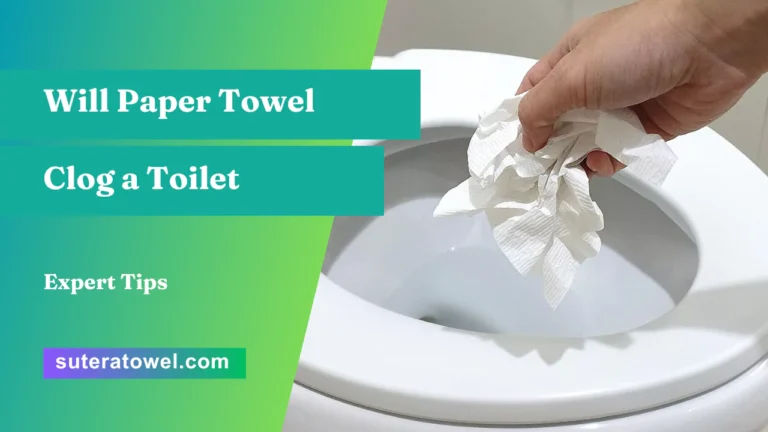No, paper towels will not clog a toilet. Paper towels are not designed to break down like toilet paper, and their thicker, more absorbent nature can cause them to get stuck in pipes and plumbing, leading to potential clogs and blockages.
Therefore, it is important to avoid flushing paper towels down the toilet. Instead, dispose of them in a trash can to prevent any plumbing issues. Remember, only toilet paper should be flushed down the toilet to ensure proper plumbing function and avoid costly repairs.
- 1 The Myth And Reality Of Flushing Paper Towels
- 2 The Science Behind Toilet Clogs
- 3 Can Paper Towels Dissolve In Water?
- 4 The Impact Of Flushing Paper Towels On Plumbing Systems
- 5 The Sustainability Factor
- 6 Practical Tips For Toilet Maintenance
- 7 Frequently Asked Questions Of Will Paper Towel Clog A Toilet
- 8 Conclusion
The Myth And Reality Of Flushing Paper Towels
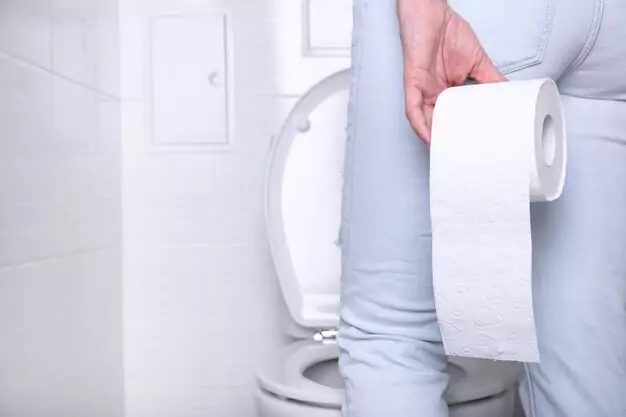
Flushing paper towels may lead to toilet clogs and plumbing issues. It is important to dispose of them properly to avoid potential problems.
Understanding The Common Belief
- Flushing paper towels down the toilet is often believed to be a convenient way to dispose of them. Many people assume that because paper towels are similar to toilet paper, they can be treated the same way. However, this prevailing belief is a myth, and it is important to understand the potential consequences before flushing paper towels.
Examining The Actual Effects Of Flushing Paper Towels
- Flushing paper towels may seem harmless, but in reality, it can lead to several problems. Here are the actual effects of flushing paper towels:
- Clogging the toilet: Paper towels are thicker and more absorbent than toilet paper. When flushed, they can easily become tangled in the plumbing pipes, leading to blockages. This can cause your toilet to overflow or even damage the plumbing system, resulting in costly repairs.
- Damaging septic systems: For those who have septic systems, flushing paper towels can be even more problematic. Unlike toilet paper, paper towels do not easily break down in water. Over time, they can accumulate in the septic tank, causing it to fill up faster and requiring more frequent pumping.
- Environmental impact: Flushing paper towels contributes to environmental pollution. The sewer systems and wastewater treatment plants are not designed to handle non-biodegradable materials like paper towels. This can lead to clogging in the sewer lines and increase the demand on the treatment plants, potentially harming the environment.
- Increased maintenance costs: Municipalities and utility companies bear the burden of dealing with the consequences of flushing paper towels. Increased maintenance costs are ultimately transferred to consumers through higher water bills and taxes. So, by flushing paper towels, not only are you risking plumbing issues, but you are also indirectly contributing to the financial burden on your community.
While it may be tempting to flush paper towels down the toilet for convenience, it is essential to understand the negative impact it can have. By disposing of paper towels in the trash rather than flushing them, you can prevent clogs, reduce maintenance costs, and help protect the environment.
So, let’s break the myth and make responsible choices when it comes to proper waste disposal.
The Science Behind Toilet Clogs
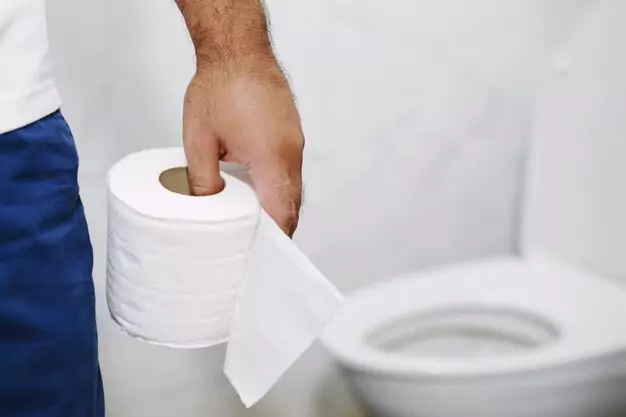
Curious about whether paper towels can cause toilet clogs? Discover the science behind it and the potential risks involved. Find out more here.
Toilets are a necessary part of our daily lives, but have you ever wondered how they work and what can cause them to get clogged? Understanding the science behind toilet clogs can help you prevent future plumbing mishaps and ensure that your toilet functions smoothly.
In this section, we will explore how toilets work and identify some common culprits of toilet clogs.
How Toilets Work And What Can Cause Blockages:
Toilets are designed to efficiently flush waste and maintain a clean and hygienic environment. Here’s a breakdown of their workings and some factors that can lead to blockages:
- Flushing mechanism: When you press the flush lever or button, it triggers a chain reaction of events. The flush valve opens, allowing water from the tank to rush into the bowl. This sudden influx of water creates a forceful flow that pushes waste through the drainpipe and into the sewage system.
- Drainpipe design: The drainpipe is an integral part of the toilet’s functioning, ensuring that waste is efficiently carried away. It is usually curved and known as the “S” or “P” trap. The curved shape prevents unpleasant odors from entering your bathroom and also helps maintain a water seal. If the drainpipe becomes obstructed, it can lead to clogs.
- Inadequate water volume: Insufficient water volume during flushing can contribute to toilet clogs. If there isn’t enough water to create a forceful flow, waste may not be expelled properly, increasing the likelihood of a blockage.
- Flushing inappropriate items: One common cause of toilet clogs is flushing items that are not meant to be disposed of in the toilet. Materials like diapers, feminine hygiene products, paper towels, and baby wipes do not break down easily and can obstruct the drainpipe.
- Hard water deposits: In areas with hard water, mineral deposits can accumulate over time. These deposits can build up on the inner surfaces of the drainpipe, narrowing the pipe’s diameter and impeding the flow of waste.
By being aware of how toilets work and the factors that can contribute to clogs, you can take preventative measures to keep your toilet in good working order. Remember to only flush toilet paper and waste, and avoid disposing of anything else down the toilet.
In the next section, we will delve deeper into some of the common culprits of toilet clogs that we briefly touched on here. Stay tuned!
Can Paper Towels Dissolve In Water?
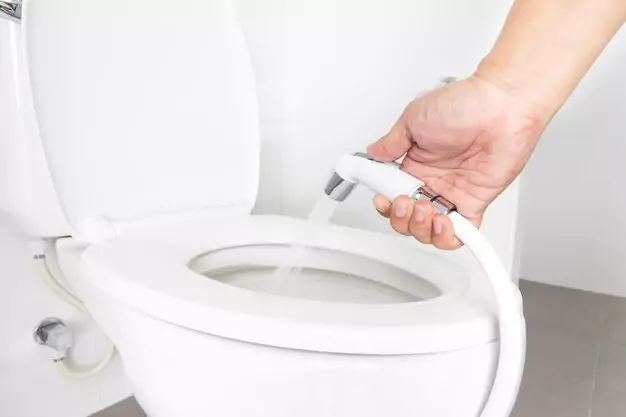
Paper towels do not dissolve in water, and they may clog toilets if flushed down. It’s important to dispose of paper towels in the trash to avoid potential plumbing issues.
Exploring The Composition Of Paper Towels
- Paper towels are made from a combination of softwood pulp and water, which are then compressed and dried to create a tough and absorbent material.
- During the manufacturing process, paper towels are typically treated with chemicals like binders and adhesives to enhance their strength and absorbency.
- The fibers in paper towels are shorter and less interwoven compared to toilet paper, allowing them to retain more liquids and resist disintegration when wet.
Investigating The Breakdown Process In Water
- When paper towels come into contact with water, they tend to absorb it quickly due to their high absorbency properties.
- However, unlike toilet paper designed to break down easily in water, paper towels are designed to be durable and resistant to disintegration.
- The longer and denser fibers in paper towels make them more likely to clump together and form blockages in the plumbing system, leading to potential toilet clogs.
Overall, while paper towels may initially absorb water effectively, they are not designed to dissolve or break down easily in water. It is crucial to avoid flushing them down the toilet to prevent potential plumbing issues. Remember to dispose of paper towels properly in designated waste bins to maintain the functionality of your plumbing system.
The Impact Of Flushing Paper Towels On Plumbing Systems
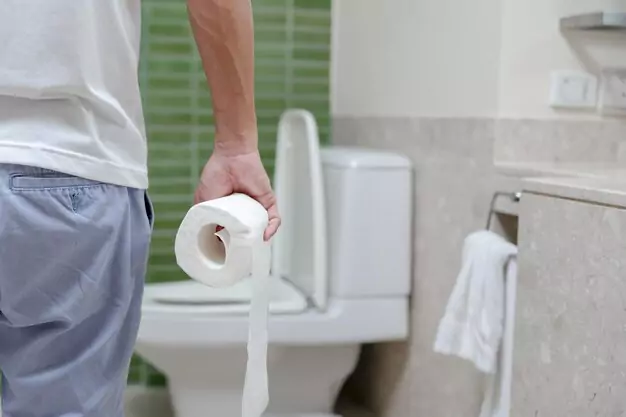
Flushing paper towels down the toilet can result in clogged plumbing systems. Avoid the risk by disposing of paper towels in the trash instead.
Flushing paper towels down the toilet may seem like a convenient way to dispose of them, but it can have serious consequences on your plumbing system. Unlike toilet paper, paper towels are designed to be strong and absorbent, which means they don’t break down as easily in water.
Here’s what you need to know about the potential consequences of flushing paper towels and why they are different from toilet paper:
The Potential Consequences Of Flushing Paper Towels:
- Clogging the pipes: Paper towels are thicker and sturdier than toilet paper, making them more likely to cause blockages in your plumbing system. Flushing them down the toilet can lead to clogged pipes and drainage issues, which can be costly to fix.
- Damaging the septic tank: If you have a septic system, flushing paper towels can cause damage to the tank and disrupt the natural decomposition process. This can result in backups and the need for expensive repairs or replacements.
- Causing environmental harm: Flushing paper towels not only affects your plumbing system but also has negative implications for the environment. Since they are slower to break down, they can contribute to clogs in the sewer systems and end up in water bodies, harming marine life and polluting ecosystems.
Why Paper Towels Are Different From Toilet Paper:
- Absorbency and strength: Paper towels are designed to be highly absorbent and durable, which means they can retain their integrity even when wet. This makes them more likely to cause blockages and be resistant to breaking down in water compared to toilet paper.
- Fiber composition: Toilet paper is typically made from biodegradable fibers that are designed to dissolve in water quickly. In contrast, paper towels are made from thicker and stronger fibers that are not intended to break down as easily. Their composition makes them more prone to causing plumbing issues when flushed.
- Manufacturing process: Paper towels undergo a different manufacturing process than toilet paper. They are often treated with chemicals and have additional layers or embossing to enhance absorbency and strength. These factors contribute to their resilience and difficulty in breaking down when exposed to water.
Flushing paper towels can have severe consequences on your plumbing system due to their thickness, strength, and inability to break down easily. It’s essential to remember that only toilet paper should be flushed down the toilet to maintain the smooth functioning of your plumbing and prevent costly repairs.
Dispose of paper towels in the trash bin or consider using reusable cleaning cloths as an eco-friendly alternative.
The Sustainability Factor
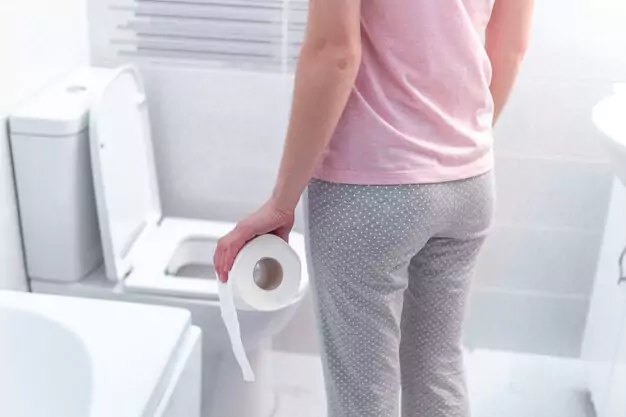
Paper towels can pose a risk of clogging toilets due to their non-biodegradable nature. Considering sustainability, it is advisable to opt for more environmentally friendly alternatives to avoid potential plumbing issues.
Paper towels are a common household item that many of us use daily. They are convenient for cleaning up spills, wiping surfaces, and drying our hands. But have you ever wondered about the environmental impact of using paper towels?
Will they clog a toilet? In this section of our blog post, we will explore the sustainability factor of paper towels and discuss eco-friendly alternatives that you can consider.
Comparing Environmental Impacts Of Paper Towels And Toilet Paper
When it comes to the environmental impact, it’s important to compare the effects of using paper towels and toilet paper. Here’s a breakdown of their respective impacts:
- Paper towels:
- Made from trees: Paper towels are typically made from trees, which require deforestation, contributing to habitat loss and reducing forests’ ability to absorb carbon dioxide.
- Energy-intensive production: The manufacturing process of paper towels involves high energy consumption and the use of chemicals, such as bleach, which can further harm the environment.
- Single-use: Most paper towels are used once and then thrown away, leading to a significant amount of waste generation. They often end up in landfills, where they take a long time to decompose.
- Transportation emissions: Paper towels are often produced in one location and then transported to various retail stores, resulting in additional emissions.
- Toilet paper:
- Recycled options available: Some toilet paper brands offer recycled options, which can help reduce the demand for virgin materials and decrease deforestation.
- Reduced energy consumption: Compared to paper towels, the production process of toilet paper generally requires less energy.
- Flushable: Unlike paper towels, toilet paper is designed to be flushed down the toilet without causing plumbing issues or clogging.
Discussing Eco-Friendly Alternatives To Paper Towels
If you are concerned about the environmental impact of paper towels and want to make more sustainable choices, here are some eco-friendly alternatives to consider:
- Cloth towels: Invest in a set of reusable cloth towels that can be washed and reused multiple times. They are not only better for the environment but also more cost-effective in the long run.
- Bamboo towels: Look for bamboo towels, which are made from a renewable and fast-growing resource. Bamboo is also naturally antibacterial, making it a hygienic choice.
- Air dryers: In public places, choose air dryers instead of paper towels to dry your hands. This reduces waste and saves energy.
- Use less: Simply being mindful of our paper towel usage can make a significant difference. Use them sparingly and only when necessary.
By considering these eco-friendly alternatives and being conscious of our consumption habits, we can reduce our environmental footprint and contribute to a more sustainable future. So, next time you reach for a paper towel, think about the impact it may have and explore alternative options that are better for the planet.
Practical Tips For Toilet Maintenance
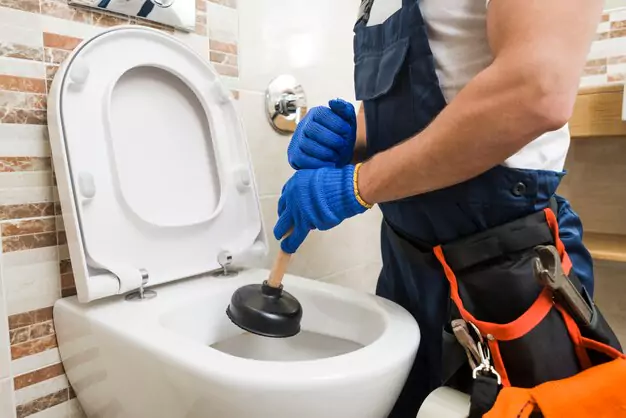
Maintain your toilet’s functionality with these practical tips. Learn whether paper towels can clog a toilet and how to prevent potential blockages.
Toilet clogs can be a major inconvenience and can lead to costly repairs if not properly addressed. Fortunately, by following some simple best practices for preventing toilet clogs and ensuring the proper disposal of paper towels and other non-flushable items, you can keep your toilet running smoothly.
Here are some practical tips to help you maintain your toilet:
Best Practices For Preventing Toilet Clogs:
- Use toilet paper sparingly: Only use an amount that is necessary to clean yourself. Excess toilet paper can easily cause clogs.
- Flush multiple times if needed: If you have used a large amount of toilet paper or if you have a low-flow toilet, consider flushing multiple times to prevent clogs.
- Educate household members: Make sure everyone in your household understands that only toilet paper should be flushed. Teach them about the potential risks of flushing other objects.
- Regularly clean your toilet: Maintaining a clean toilet can help prevent the buildup of residue and debris that can contribute to clogs.
Proper Disposal Of Paper Towels And Other Non-Flushable Items:
- Have a designated trash can: Place a trash can near the toilet for easy disposal of non-flushable items. This will help to remind household members not to flush these items.
- Install a sign: Consider placing a polite reminder sign near the toilet to remind people not to flush paper towels, feminine hygiene products, baby wipes, or other items that can clog the toilet.
- Dispose of paper towels elsewhere: If you find yourself with soiled paper towels, dispose of them in the regular trash bin instead of flushing them down the toilet.
- Encourage responsible habits: Teach children and guests to dispose of paper towels and other non-flushable items properly.
By following these best practices, you can minimize the risk of toilet clogs and keep your bathroom plumbing in good working order. Remember, prevention is key when it comes to toilet maintenance.
Frequently Asked Questions Of Will Paper Towel Clog A Toilet
How Do You Unclog A Toilet That Has Paper Towel In It?
To unclog a toilet with a paper towel in it: 1. Use a plunger to create pressure and dislodge the blockage. 2. If the plunger doesn’t work, try using a toilet auger or snake. 3. If the clog persists, mix hot water and dish soap, then pour it into the toilet.
4. Allow it to sit for a while, then use the plunger again. 5. If all else fails, contact a professional plumber for assistance.
How Long Does Paper Towel Take To Dissolve In Toilet?
In a toilet, paper towels can take a while to dissolve completely.
Will Paper Towels Clog A Septic Tank?
No, paper towels can clog a septic tank due to their inability to break down quickly.
How Long Does Paper Take To Dissolve In Water?
Paper typically takes a few days to a few weeks to dissolve completely in water.
Conclusion
Based on the information presented in this blog post, it is clear that paper towels can indeed clog a toilet. While they may seem harmless, paper towels are not designed to dissolve quickly in water like toilet paper. Instead, they have a stronger and more durable structure, making them more likely to get stuck in the pipes or create blockages.
To avoid the inconvenience and potentially costly repairs that come with a clogged toilet, it is crucial to use only toilet paper when using the restroom. If you find yourself without toilet paper, it is better to find an alternative solution rather than resorting to using paper towels.
Remember, prevention is key. By educating yourself and others about the potential risks of using paper towels in the toilet, you can help avoid unnecessary plumbing issues. Stick with toilet paper and do your part in keeping the toilet functioning properly.
